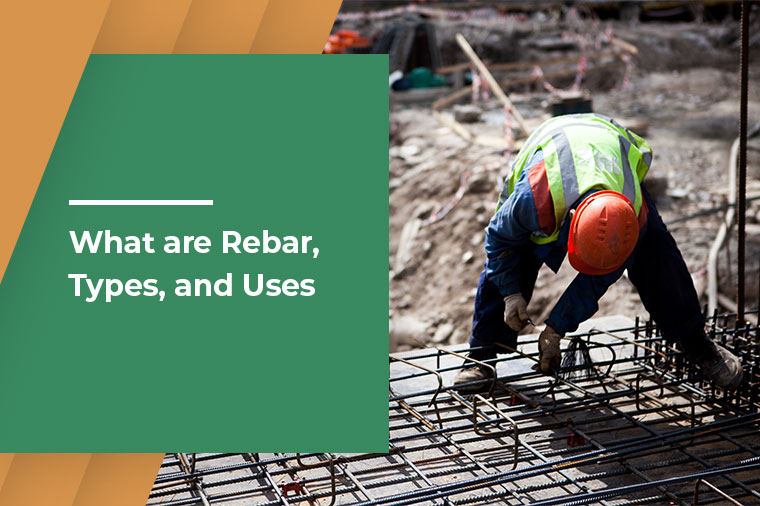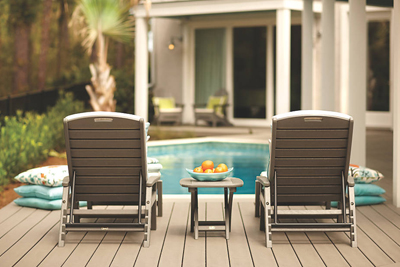WHAT IS A REBAR, AND WHAT ARE ITS SEVERAL TYPES AND USES?

To All Our Valued Customers, Over the past few years, the Covid 19 Pandemic has forced us to adapt and change the way we do things on a day-to-day basis. Florida Lumber is no exception. To make sure that we remain strong and competitive in the market for the years to come, Florida Lumber has had to adjust and change our vision for the future. In the last 2 years, we have stopped selling Sheetrock and drywall products, roofing felt and roofing materials, and have even closed on Saturdays.
Over the last few months, we have been transitioning our way out of the door supply business so on August 31, 2022, our door shop will stop assembling doors. We will continue liquidating our doors from inventory until we are out of material.
Some customers have asked if we are closing or even moving locations. To set the story straight, we are not closing or selling the business and we are not moving. These changes are all part of our new vision and path to continue serving South Florida and increasing our footprint in the construction supply industry.
Our focus is going to be on Lumber, Construction Materials, Rebar Fabrication and Rebar Accessories. As we have liquidated some of the items that we don’t sell anymore we have created more space to buy a larger volume of our core items and pass on the savings to our customers.
In the next year you will start seeing changes that will help improve our ability to serve you, our customers. We appreciate your business and your patience as Florida Lumber’s new vision becomes reality.
A Todos Nuestros Valiosos Clientes En los ultimos anos, la pandemia de el Virus (Covid 19) nos ha forzado a adaptarnos y cambiar la forma de hacer cosas en el dia a dia. Florida Lumber no ha sido una excepcion.
Para asegurarnos de mantenernos fuertes y competitivos en el mercado en los anos venideros, Florida Lumber ha tenido que ajustar y cambiar nuestra vision para el futuro. En los dos ultimos anos hemos dejado de vender los productos de yeso (sheetrock), paneles de yeso (drywall), tela asfaltica (roofing felt), materiales de techo y cerramos los Sabados. En los ultimos meses, hemos estado en transicion para salir del negocio de suministro de puertas, en Agosto 31, del 2022 nuestra tienda de puertas dejara de construir y/o cortar puertas. Vamos a continuar liquidando nuestro inventario de puertas haste que terminemos todo el material. Algunos de nuestros clientes han preguntado si estamos cerrando o si nos estamos moviendo a otra localidad. La verdad es que no estamos cerrando, no estamos vendiendo y no estamos cambiando de localidad. Estos cambios son todos parte de nuestra nueva vision y camino a continuar sirviendo al estado sur de la Florida y incrementar nuestras huellas en la industria de suministros de construccion.
paneles de yeso (drywall), tela asfaltica (roofing felt), materiales de techo y cerramos los Sabados.
En los ultimos meses, hemos estado en transicion para salir del negocio de suministro de puertas, en Agosto 31, del 2022 nuestra tienda de puertas dejara de construir y/o cortar puertas.
Vamos a continuar liquidando nuestro inventario de puertas haste que terminemos todo el material. Algunos de nuestros clientes han preguntado si estamos cerrando o si nos estamos moviendo a otra localidad.
La verdad es que no estamos cerrando, no estamos vendiendo y no estamos cambiando de localidad. Estos cambios son todos parte de nuestra nueva vision y camino a continuar sirviendo al estado sur de la Florida y incrementar nuestras huellas en la industria de suministros de construcción.
2431 N.W. 20TH ST.
MIAMI, FL 33142
PHONE: (305) 635-6412
Sales Fax: (305) 633-4054
Accounting Fax: (305) 635-3723
Email: sales@tloridalumber.com

The term rebar may have come up when planning and buying materials for a concrete or cement construction project. But what exactly is rebar? What exactly does it contribute to your project that makes it so essential? Are the various kinds necessary for your project? To get you started, here's a brief overview of the basics of rebar.
Concrete is reinforced with steel bars to help it withstand tension forces. Although concrete is naturally resistant to compression forces, tension pressures can cause it to break. However, plain rebars are also used when the reinforcing steel is expected to slide, such as in highway pavement and segmental bridges.
What is a Rebar?
Rebar is a steel bar that is used in the construction of concrete structures. Reinforced concrete is created by adding these reinforcing steel bars. Rebar helps keep fractures from causing the project to break apart, whether in the shape of floor slabs, walls, or posts. Even though all concrete fractures, rebar, and reinforcing materials aid in controlling the location and amount of the cracks. It also gives the project structural strength.
Uses of rebar
-
Gives Stability to Concrete
While poured concrete is a stable material in and of itself, it requires other elements to strengthen its stability. The goal is to create a concrete structure, such as a pillar or a wall, that is sturdy enough to sustain high compression levels. Because of the additional support, every component of a concrete pillar would be stabilized. Steel rebar, in addition to the previously desired steel features, can give an extra layer of protection due to its greater tensile strength.
-
Reduce the usage of thick layers of concrete
It's very typical for more significant constructions to utilize more concrete, especially if it's the most common type of construction material. However, not every undertaking necessitates the use of such amounts. Reinforcing bars can be used to minimize the amount of poured concrete used. This is not only a practical option, but it is also an aesthetically pleasing one. With the use of rebars, your driveway will appear less bulky and more stable.
-
To Prevent Cracking
As stated previously, reinforced bars increase the overall structural integrity of concrete pillars, for example. It's not difficult to assume that these pillars would be subjected to many types of weather-related factors throughout time, such as rain or drastic temperature variations. The rebar improves the poured concrete's capacity to endure these elements and other severe changes. Buildings' structural integrity is critical in every area, as it allows them to maintain their shape and form while also avoiding potential safety concerns and hazards.
-
It Offers Longevity
It should go without saying that rebars provide a longer lifespan to any building. Chemical processes are used to modify the chemical architecture of steel and the already appealing features of this type of material. For example, annealing is a heat treatment process used to enhance steel's flexibility and tensile strength. As a result, when this form of raw building material is included in a concrete structure, the structure can withstand enormous loads and other types of weights.
-
Allowing cost-efficient solutions
A steel rebar's qualities might have a beneficial blow impact in any form of construction or industrial project. Despite being regularly exposed to low temperatures, a cold-storage warehouse using concrete pillars impregnated with steel rebars would not need consistent repairs or checks. This enables them to save money and avoid budget blowouts due to something that might have been avoided.
Additional Read:
WHAT TYPE OF REBAR GRADE IS RIGHT FOR YOUR PROJECT?
Types of Rebar
-
Welded Wire Fabric
Welded wire fabric comprises a series of steel wires arranged at right angles and electrically welded at all points where the steel wires intersect. In slab-on-ground slabs, welded wire fabric, often known as WWF, can be used when the ground has been adequately compacted. Welded wire cloth with a heavier fabrication can be used in walls and structural floor slabs. Road pavements, box culverts and drainage systems, and small concrete canals are examples of this.
-
Tempered steel rebar
Tempered steel rebar, often known as carbon steel rebar or black bar, is the most widely used rebar. It is less costly than other rebar forms, but it corrodes more quickly.
-
Carbon Steel Rebars
This is the most prevalent rebar, also known as the "black bar." It's incredibly versatile, but it corrodes more readily than other varieties, making it unsuitable for high-humidity environments or constructions that are constantly exposed to water. However, many people believe that carbon steel rebars are the best alternative for all other forms of construction.
-
Sheet-Metal Reinforcing Bars
Sheet-metal reinforcement is often used in the building of floor slabs, staircases, and roofs. Sheet-metal reinforcement is made of annealed sheet steel components bent into one-sixteenth-inch deep corrugations with holes punched at regular intervals.
-
Stainless steel rebar
For areas where strong corrosion resistance is necessary or for essential structural components, stainless steel rebar replaces carbon steel as concrete reinforcing material. Carbon steel corrosion is caused by a combination of concrete carbonization and chloride diffusion, in which chlorides infiltrate the concrete due to deicing chemicals such as chloride-based salts or by exposure to seawater splash. The corrosive substances react with the steel, resulting in the production of rust, which can increase up to 6-7 times its initial volume.
-
Expanded Metal or Wire Mesh
Another suitable concrete reinforcing option is expanded metal or wire mesh reinforcement. Shearing a sheet of steel into parallel lines and then expanding it to form a diamond or square shape between each cut produces expanded metal. Expanded metal is widely utilized as reinforcement in regions where a thick layer of plaster is required and to strengthen light concrete structures.
-
Epoxy-Coated Rebars
Epoxy-coated rebars are costly and are only utilized in regions where saltwater will be present or where corrosion would be an issue. The only problem is that the coating might be fragile at times, so make sure you get those bars from a trusted source.
-
Fiberglass Rebar
Fiberglass rebar, also known as fiberglass-reinforced polymer rebar or Glass Fiber Reinforced Polymer (GFRP) rebar, is a structural reinforcing bar made of a fiberglass resin wrapped around a fiberglass roving - an interlaced network of glass fibers. The main benefit of fiberglass rebar is that it will never rust due to salt or other environmental factors. In addition, as compared to steel rebar, fiberglass rebar offers a stronger tensile strength, a considerable weight reduction (75 percent lighter than steel).
-
Threaded Rebar
Threaded rebar, also known as jumbo rebar, has single or double threaded ends to allow conventional UNC fasteners for holding goods in place, comparable to anchor bolts. Threads can be cut by first cutting down the rebar to generate a turned-down section with the same diameter as the rebar deformation at its lowest point, then rolling or cutting the thread.
-
Basalt Rebar
Basalt rebar is made from basalt, an inert volcanic rock with several benefits over normal steel rebar. Basalt rebar is 2-3 times stronger than steel rebar and weights around a fifth of the same diameter product. Basalt rebar is electrically and thermally non-conductive, non-hygroscopic, and corrosion-resistant.
Conclusion
This article presented an overview of a few of the most prevalent types of rebar used in construction to increase concrete's tensile strength.Despite its simple appearance, Steel rebar has a significant influence on the ability of several constructions to maintain their shape for extended periods. The benefits of this type of steel cannot be overstated, as seen by its widespread use in various procedures. Hopefully, the material in this article has provided you with enough information on the usage of rebar for your future thoughts and attempts.
For more information visit us on our website Florida Lumber.

